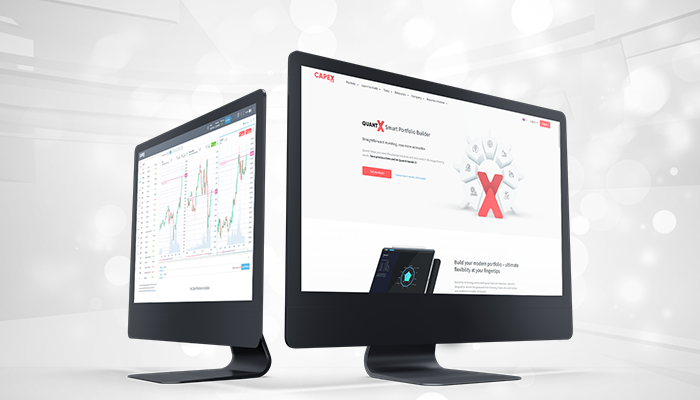Over the years, as I navigated through various business domains, I encountered operational challenges and efficiency bottlenecks. From tech start-ups and fintech to real estate and green energy, my entrepreneurial journey has been marked by innovation.
The rapid advancements in AI over the past decade have made it an indispensable tool for modern businesses. As an early adopter, I’ve consistently been attracted to the promise of emerging technologies, especially AI, and its transformative potential in challenging traditional paradigms.
At its core, the AI business model works as a catalyst for growth, aiding in refining your business model and enhancing decision-making on both internal and external strategic fronts. However, understanding ‘what’ and ‘how’ AI can offer opportunities is crucial.
How I Began Implementing AI In My Businesses

Understanding the advantages of AI is one thing; implementing it is another. Here are the steps to consider:
Start by clearly defining the objectives you aim to achieve with AI. Before diving into it, pinpoint your goals. Whether it's automation, product enhancement, or improved decision-making processes, knowing your objectives will guide your search for the right AI solutions.
Once your goals are clear, delve into specific applications that resonate with your startup’s ethos. For instance, if you’re considering several AI marketing tools, ensure they align with your marketing strategy.
Before investing, research to find the ideal AI tool for your initiative. Understand the technology, its potential risks, and limitations. Factor in your budget and your team’s tech proficiency.
As you integrate, ensure your team is equipped to maximize its potential. The journey of AI success is a learning curve, driven by your team’s adaptability.
When introducing new tech, it's best to start with manageable projects and gradually scale up. Start with a simple project that you can complete quickly, test rigorously, and then progressively tackle more complex projects. Always be prepared to adapt to unexpected outcomes.
After achieving some early successes, resist the urge to implement AI across the entire business immediately. As above, start small, test, iterate then build out. You need to give your team time to get used to using AI and integrating it into their workflows and also in the culture and always monitor customer feedback.
AI solutions should never be left on autopilot. Regularly evaluate the value and cost-effectiveness of the AI tools in use. If a tool is not delivering, adjust until you strike the right balance.
How AI Revolutionized My Businesses

Automated Customer Interactions
The first noticeable change was in customer interactions. By implementing AI-driven chatbots, my businesses were able to offer 24/7 assistance, significantly reducing overhead costs and drastically improving customer satisfaction rates. Within months, I witnessed higher engagement and increased loyalty—testament to the power of personalized and instantaneous support.
Data Driven Decisions
Another revolutionary change was in data analytics. My startups were able to process vast amounts of data, extracting actionable insights in real-time. This deep understanding of customer behavior enabled us to refine our offerings, predict market trends, and proactively tackle potential challenges.
Enhancing Operations & Productivity
My teams once spent considerable time on routine tasks. AI introduced efficiencies, reducing these timelines by an impressive 50%. From automating document verification to predicting market fluctuations, AI's integration translated to faster decision-making, reduced errors, and an overall increase in operational efficiency. This freed up time was redirected towards innovation.
AI in Marketing & Sales
From predictive analytics to sentiment analysis, AI in marketing aids in market research, facilitates content creation, and automates campaigns. Furthermore, AI-driven sales processes, like chatbots, handle traffic and convert sales efficiently.
Talent Acquisition
Hiring is often a challenge for startups. AI can streamline the process by screening CVs, automating interview schedules, and ensuring a smooth hiring process, ultimately securing top talent.
Conclusion
Reflecting on AI's role in my businesses, I see its value not just in advanced tech but in tangible, measurable outcomes. The hours saved, the dollars not spent, the resources freed up represent tangible benefits, not just abstract concepts. These gains have empowered me to focus on growth, innovation, and pioneering change. AI, for me, isn't an option; it's a necessity. It's the edge that every entrepreneur, including myself, needs in this ever-evolving business landscape. As technology continues to advance, I believe the potential of AI will only grow, further revolutionizing the business landscape.
 Understanding the advantages of AI is one thing; implementing it is another. Here are the steps to consider:
Understanding the advantages of AI is one thing; implementing it is another. Here are the steps to consider:





 The story of
The story of  Although he is the founder and CEO of a leading global player in the online trading sector,
Although he is the founder and CEO of a leading global player in the online trading sector,  With an already vast portfolio of trading instruments, covering more than 10.000 assets, CAPEX.com is far from stopping here.
A lot of companies say they want to be industry disruptors, but few actually put in the hard work needed to achieve this goal. That's where the company's CEO steps into play.
He wants CAPEX.com to promote education amongst traders, offering several learning tools, such as CAPEX Academy, online webinars with industry professionals, expert daily analysis, market insights and much more.
Through CAPEX.com, investors get to learn and to stay updated with all the latest market news, while trading through state-of-the-art trading platforms: CAPEX WebTrader and MetaTrader 5.
Democratization is a huge factor in online trading today, and Mr. Pătrașcu knows that investors are always looking for new opportunities. The current economic landscape is giving more people the chance to start investing in various types of assets that were not considered affordable just a couple of years ago.
Being an experienced investor, with over a decade in online trading, Octavian Pătrașcu knows exactly when the moment to start implementing changes has arrived. Traders should keep an eye out for all the latest releases, because CAPEX.com plans to surprise investors worldwide with a couple of new and exciting products in 2022.
With an already vast portfolio of trading instruments, covering more than 10.000 assets, CAPEX.com is far from stopping here.
A lot of companies say they want to be industry disruptors, but few actually put in the hard work needed to achieve this goal. That's where the company's CEO steps into play.
He wants CAPEX.com to promote education amongst traders, offering several learning tools, such as CAPEX Academy, online webinars with industry professionals, expert daily analysis, market insights and much more.
Through CAPEX.com, investors get to learn and to stay updated with all the latest market news, while trading through state-of-the-art trading platforms: CAPEX WebTrader and MetaTrader 5.
Democratization is a huge factor in online trading today, and Mr. Pătrașcu knows that investors are always looking for new opportunities. The current economic landscape is giving more people the chance to start investing in various types of assets that were not considered affordable just a couple of years ago.
Being an experienced investor, with over a decade in online trading, Octavian Pătrașcu knows exactly when the moment to start implementing changes has arrived. Traders should keep an eye out for all the latest releases, because CAPEX.com plans to surprise investors worldwide with a couple of new and exciting products in 2022.
 Special times require special measures and adaptations, and Octavian Pătrașcu is very well aware of this aspect of the trading game. That’s why, for 2022,
Special times require special measures and adaptations, and Octavian Pătrașcu is very well aware of this aspect of the trading game. That’s why, for 2022,